Related Research Articles

The Pulitzer Prize for Poetry is one of the seven American Pulitzer Prizes awarded annually for Letters, Drama, and Music. It was first presented in 1922, and is given for a distinguished volume of original verse by an American author, published during the preceding calendar year.

Anthony George Franciosa was an American actor most often billed as Tony Franciosa at the height of his career. He began his career on stage and made a breakthrough portraying the brother of the drug addict in the play A Hatful of Rain, which earned him a nomination for the Tony Award for Best Featured Actor in a Play. He reprised his role in its subsequent film adaptation, for which he won the 1957 Venice Film Festival Award for Best Actor, and was nominated for the Academy Award for Best Actor in a Leading Role.
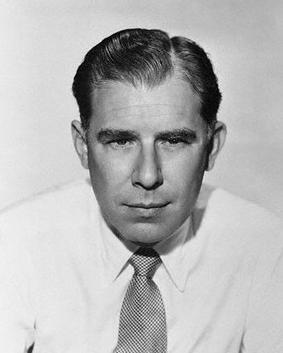
George Seaton was an American screenwriter, playwright, film director and producer, and theatre director.

Ishmael is a character in Herman Melville's Moby-Dick (1851), which opens with the line, "Call me Ishmael." He is the first person narrator in much of the book. Because Ishmael plays a minor role in the plot, early critics of Moby-Dick assumed that Captain Ahab was the protagonist. Many either confused Ishmael with Melville or overlooked the role he played. Later critics distinguished Ishmael from Melville, and some saw his mystic and speculative consciousness as the novel's central force rather than Captain Ahab's monomaniacal force of will.
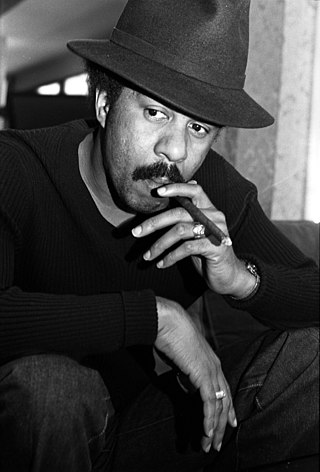
Richard Franklin Lennox Thomas Pryor Sr. was an American stand-up comedian and actor. He reached a broad audience with his trenchant observations and storytelling style, and is widely regarded as one of the greatest and most influential stand-up comedians of all time. Pryor won a Primetime Emmy Award and five Grammy Awards. He received the first Kennedy Center Mark Twain Prize for American Humor in 1998. He won the Writers Guild of America Award in 1974. He was listed at number one on Comedy Central's list of all-time greatest stand-up comedians. In 2017, Rolling Stone ranked him first on its list of the 50 best stand-up comics of all time.
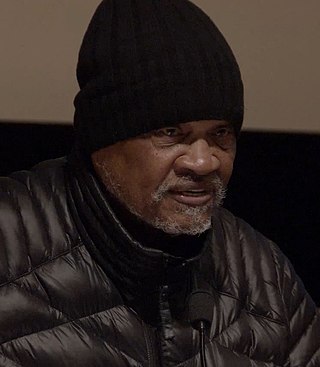
Ishmael Scott Reed is an American poet, novelist, essayist, songwriter, composer, playwright, editor and publisher known for his satirical works challenging American political culture. Perhaps his best-known work is Mumbo Jumbo (1972), a sprawling and unorthodox novel set in 1920s New York.

The Assassination Bureau Limited is a 1969 British Technicolor black comedy adventure film, produced by Michael Relph, directed by Basil Dearden, and starring Oliver Reed, Diana Rigg, Telly Savalas, and Curd Jürgens. It was released in the U.S. by Paramount Pictures and is based on Jack London's unfinished novel, The Assassination Bureau, Ltd, posthumously published in 1963. Unlike the novel, which is set in the United States, the film is set in Europe.

Leslie Aaron Fiedler was an American literary critic, known for his interest in mythography and his championing of genre fiction. His work incorporates the application of psychological theories to American literature. Fiedler's best known work is the book Love and Death in the American Novel (1960). A retrospective article on Leslie Fiedler in the New York Times Book Review in 1965 referred to Love and Death in the American Novel as "one of the great, essential books on the American imagination. .. an accepted major work." This work views in depth both American literature and character from the time of the American Revolution to the present. From it, there emerges Fiedler's once scandalous—now increasingly accepted—judgement that our literature is incapable of dealing with adult sexuality and is pathologically obsessed with death.
Our great novelists, though experts on indignity and assault, on loneliness and terror, tend to avoid treating the passionate encounter of a man and a woman, which we expect at the center of a novel. Indeed, they rather shy away from permitting in their fictions the presence of any full-fledged, mature women, giving us instead monsters of virtue or bitchery, symbols of the rejection or fear of sexuality.

Eskew Reeder, Jr., usually known by the stage name Esquerita, and occasionally as S.Q. Reeder or The Magnificent Malochi, was an American R&B singer, songwriter and pianist, known for his frenetic performances. He has been credited with influencing rock and roll pioneer Little Richard.
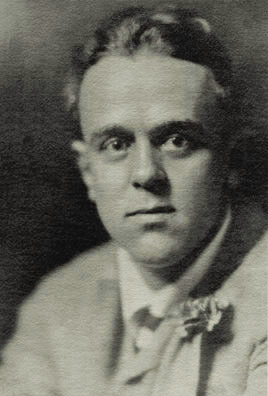
The John Reed Clubs (1929–1935), often referred to as John Reed Club (JRC), were an American federation of local organizations targeted towards Marxist writers, artists, and intellectuals, named after the American journalist and activist John Reed. Established in the fall of 1929, the John Reed Clubs were a mass organization of the Communist Party USA which sought to expand its influence among radical and liberal intellectuals. The organization was terminated in 1935.
Lonne Elder III was an American actor, playwright and screenwriter. Elder was one of the leading African American figures who informed the New York theater world with social and political consciousness. He also wrote scripts for television and film. His most well known play, Ceremonies in Dark Old Men won him a Drama Desk Award for Most Promising Playwright and was nominated for the Pulitzer Prize. The play, which was about a Harlem barber and his family, was produced by the Negro Ensemble Company in 1969.

King Richard and the Crusaders is a 1954 American historical drama film made by Warner Bros. The film stars Rex Harrison, Virginia Mayo, George Sanders and Laurence Harvey, with Robert Douglas, Michael Pate and Paula Raymond. It was directed by David Butler and produced by Henry Blanke from a screenplay by John Twist based on Sir Walter Scott's 1825 novel The Talisman. The music score was by Max Steiner and the cinematography by J. Peverell Marley. This was Warner Bros.' first essay into CinemaScope. King Richard and the Crusaders was listed in the 1978 book The Fifty Worst Films of All Time.

The Secret Ways is a 1961 American neo noir mystery thriller film based on Alistair MacLean's 1959 novel The Last Frontier. It was directed by Phil Karlson and stars Richard Widmark.

The Running Man is a 1963 British-American neo noir drama film directed by Carol Reed, starring Laurence Harvey as a man who fakes his own death in a glider accident, then runs into trouble when an insurance investigator starts taking a close interest. It was adapted by screenwriter John Mortimer from the 1961 novel The Ballad of the Running Man by Shelley Smith.
Richard Edward Wormser was an American writer of pulp fiction, detective fiction, screenplays, and Westerns, some of it written using the pseudonym of Ed Friend. He is estimated to have written 300 short stories, 200 novelettes, 12 books, many screenplays and stories turned into screenplays, and a cookbook: Southwest Cookery or At Home on the Range.
Dwight Garner is an American journalist and longtime writer and editor for The New York Times. In 2008, he was named a book critic for the newspaper. He is the author of Garner's Quotations: A Modern Miscellany and Read Me: A Century of Classic American Book Advertisements.

Boys and Girls Together is a 1964 novel by William Goldman. The title is taken from lyrics in the song, "The Sidewalks of New York".

Moby Dick is a sperm whale who is the main antagonist in Herman Melville's 1851 novel of the same name. Melville based the whale partially on a real albino whale of that period called Mocha Dick.
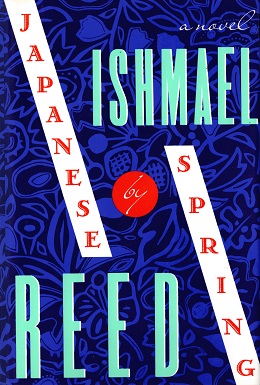
Japanese by Spring is a 1993 novel by American author Ishmael Reed. It is a campus novel and satire of American university culture, particularly the culture wars. It was reviewed in several major national newspapers and magazines, and its themes of multiculturalism and multilingualism have been the subject of academic analysis.
Carla Blank is an American writer, editor, educator, choreographer, and dramaturge. Based in the San Francisco Bay Area, for more than four decades she has been a performer, director, and teacher of dance and theater, particularly involved with youth and community arts projects.
References
- ↑ Weber, Bruce (October 8, 2008). "Charles Wright, Novelist, Dies at 76". The New York Times. ISSN 0362-4331 . Retrieved September 2, 2016.
- 1 2 "Charles Wright". The Telegraph . October 14, 2008. Retrieved September 2, 2016.
- ↑ Knickerbocker, Conrad (March 5, 1966). "Books of the Times: Laughing on the Outside". The New York Times. Retrieved September 2, 2016.
- ↑ Garner, Dwight (February 23, 2017). "The Pleasures of a Writer Who Was 'Richard Pryor on Paper'". The New York Times.
- ↑ Reed, Ishmael (September 6, 2019). "The Writer Who Rejected the Black Literary Bourgeoisie". LitHub . Retrieved October 5, 2022.